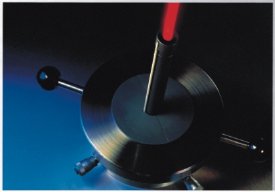Thermal conductivity and diffusivity are thermophysical material parameters necessary for describing the heat transport properties of a material or component. These physical parameters are the basis for accurate thermotechnical simulations or for the analysis of temperature fields in components for electronic assemblies, power plant turbines or drive units.

The Laser Flash technique is one of the most widely used methods today for the precise measurement of thermal diffusivity and conductivity. Quick test execution and exact measurement results, along with the ability to handle a broad range of thermal diffusivity and conductivity applications, are some of the many advantages of this non-contact measuring method.
For more than a decade, the NETZSCH LFA 427 has been known as one of the most versatile and precise measuring systems in Laser Flash Analysis. The simple operation of this instrument, its wide variety of sample holders, and its complex analytical capabilities have made it the standard for LFA research applications. NETZSCH LFA 427 instruments can be found in renowned institutes for space exploration, turbine optimization, and fusion technology around the world.
Until recently, the temperature range of the LFA 427 had been restricted to a maximum of 2000°C. Now as of 2010, a new version is available which allows measurements up to 2800°C. This enables materials required to perform in extreme environments - such as power trains for space shuttles - to be analyzed directly under typical use conditions. This makes it possible to engineer much more safety into such highly critical components and to eliminate any possible sources of mishap during the design stage.
This new system is yet another example of the innovative spirit and technological leadership of NETZSCH, this time in the thermal characterization of high-performance materials.